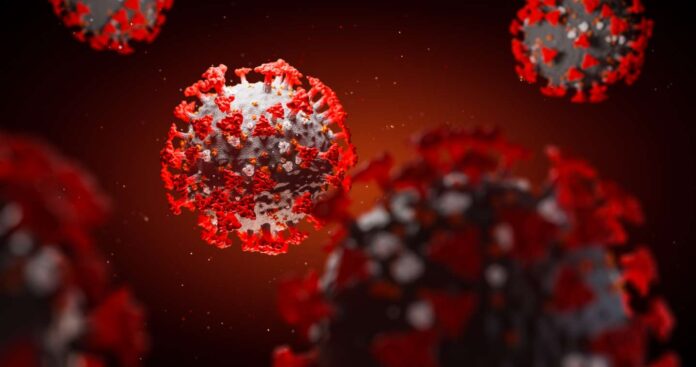
Scientists say they have identified a new variant of SARS-CoV-2—the virus which causes COVID-19—in the United States that may be the most dominant form in the country.
The variant—referred to as 20C-US—appeared to have taken root in the southern portion of the country in the late spring and early summer of 2020, with the researchers tracing its earliest appearance to Texas in May, according to a study submitted on the pre-print server bioRxiv.
The paper is a preliminary report that has yet to be peer-reviewed, and thus should not be regarded as conclusive. But the scientists from Southern Illinois University (SIU) wrote in the study that the variant has “likely… become the most dominant variant in the U.S.”
“It’s here. We found it,” Keith Gagnon, an author of the study from SIU’s School of Medicine, said in a statement. “It’s definitely home-grown and widespread, and we’re the first to characterize it.”
The variant does not appear to have spread widely beyond the U.S., although it has also been detected at very low levels in a handful of other countries, including Mexico, Australia, New Zealand, Singapore, Thailand, Taiwan, Poland and Israel, the researchers said.
Within the U.S., it seems to be most highly prevalent in the Upper Midwest, the team found in their analysis, noting that 20C-US is expected to continue spreading across the country.
Scientists have yet to determine whether or not the variant is more transmissible than others. But Gagnon and his team say the rise of 20C-US coincides with the second and third wave of COVID infections in the U.S.—circumstantial evidence that it may be more infectious than other variants.
“There are hundreds of variants floating around, so for this one to rise to prominence suggests it might be more transmissible,” Gagnon said.
The rise of the variant also coincides with a substantially reduced case fatality rates across the U.S. despite the recent rise in cases. While many factors contribute to case fatality rates, the scientists say in the study it is “plausible that 20C-US represents a SARS-CoV-2 variant with higher transmissibility but milder illness.”
“Such variants could conceivably generate a fitness advantage for the virus as they are more likely to spread quietly,” the authors wrote.
As SARS-CoV-2 has spread around the world, the virus has undergone genetic mutations that have led to the rise of several new variants. New mutations are not always beneficial to the virus, but in some cases they alter its characteristics in noticeable ways.
New variants that have recently been detected in the U.K. and South Africa, for example, appear to be more transmissible than the original.
Daniel Davis, a professor of Immunology at the University of Manchester in the U.K., who was not involved in the research, told Newsweek: “As more and more samples of this virus are genetically analyzed, we are understanding a lot more about how the virus varies across the globe. Variation is to be expected and not alarming in itself. It is well established that different versions of viruses arise and fall over time.”
“This new variant, dubbed 20C-US, is now known to be one of the common versions of the virus present in the U.S., but there are still many other versions of the virus circulating in the U.S.”
It is also currently unclear whether or not the genetic changes present in the new U.S. variant will affect the efficacy of COVID-19 vaccines, although Gagnon said there was not likely to be a large impact for now.
“Based on the mutations so far, I don’t think it will significantly impact the vaccine’s effectiveness. The catch is that the virus continues to evolve, and since May, it has acquired three mutations, and two of them are in the spike protein, one of which might affect antibody binding. There are a lot of unknowns.”
The spike protein, located on the outside of the virus, enables it to bind and enter human cells.
Ian Jones, professor of virology at the U.K.’s University of Reading told Newsweek there is currently no reason to suggest that the vaccine will not be effective against the new variant, or that it causes more severe disease.
“This is yet another example of the COVID virus adapting to the human population” he said. “Changes that increase transmission are expected as these would be selected naturally as the epidemic spreads. In this case the suggested key mutation may not alter virus binding to the cell but the entry step that immediately follows it, equally effective for increased transmission.”
Related Articles
- First Pfizer COVID Vaccine Shot Cuts Risk of Infection by 50 Percent: Study
- New York Baby Survives COVID, Has Liver Transplant—All Before Turning One
- What Is the E484K COVID Mutation? South African Variant Shows ‘Alarming’ Change
Newsweek






